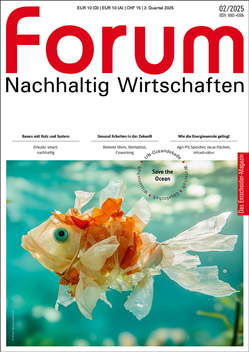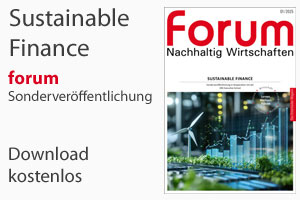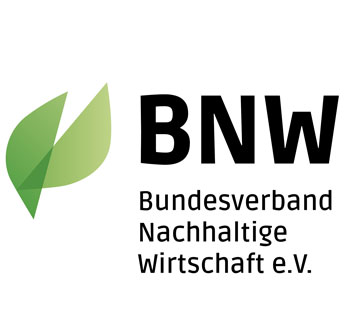Bulls, bears and financial sharks
The Mindful Finance Walk at the Zoo
Money and mindfulness - two things that at first glance do not seem to really fit together. As a banker, Friedhelm Boschert spent his entire professional life in cooperative banks, most recently as CEO of a banking network in Eastern Europe. As a trained teacher of mindfulness and meditation, he now combines these two different worlds and founded the "Mindful Finance Institute" in Oxford together with two colleagues from Germany and America. In order to contribute to making banking (again) an integral part of society, contributing creatively to the solution of present and future problems. Mindfulness and awareness in financial decisions are the most important instruments with which the Institute wants to change both thinking, behaviour, and the orientation of the financial world.
 The 'Mindful Finance Walk' takes place at Cologne Zoo. © Viola Nyssen Guillen
The 'Mindful Finance Walk' takes place at Cologne Zoo. © Viola Nyssen Guillen"Much has gone wrong in banking. For a long time, sustainability and responsibility were not part of the management credo of all bank managers," said Dr. Friedhelm Boschert, starting his "Workshop in Motion" at the bear enclosure. No coincidence, because bulls and bears are symbols of the financial markets worldwide. "Even before the outbreak of the financial crisis, the EU Commission asked how the behavior of managers could be changed with respect to corporate social responsibility." says Boschert, explaining why he considers mindfulness one of the most effective approaches to transformation. "One of the astonishing results of a large-scale study was that forms of meditation based on introspection, i.e. insight, had a far more lasting impact on managers' thinking and behavior than the mere abstract-cognitive transfer of knowledge about ethics and values," Boschert said. "With mindfulness, you learn to direct your attention and thus manage to step out of old thought patterns and disturbing emotions. Only then will you be able to reflect deeply, recognize values, and tackle change. This is exactly what the Mindful Finance approach is based on." One of the participants asked critically whether the finance industry is at all open and ready for such changes. Boschert sees the pressure of suffering in the banks from bad image, fears, high employee dissatisfaction, lack of perspective large enough to venture into new approaches to solutions. "Banks are increasingly realizing that it is only in fear-free, open spaces for thought that new creativity can emerge and sustainable perspectives can be created," answers Boschert, while the little black bear behind him slowly climbs into the branches of the tree.
Next stop - the monkey enclosure. Dozens of baboons sit on sunny rocks. Suddenly the whole gang of monkeys gets excited, screams wildly, and runs in a pack around the rocks. Feeding time. Handed on a plate for Boschert, who invites the participants to a mindfulness exercise and first elaborated on the "monkey mind". "If in your head your thoughts rage through the jungle like the gang of monkeys behind us," explains Boschert with a laugh, "then you have no choice - and the Taoists already knew that 2,400 years ago, that's how old the term is - but to observe and watch. You simply can't get them to stop". It's better to take the "third person perspective" - let your thoughts run and focus your attention in such a way that you can observe thoughts and return to your focus. We then practiced exactly that. With Boscherts calm voice we tuned in with our breath, felt its regular flow and brought our attention back there again and again. We created a small oasis of silence behind the excited horde of monkeys and the much wilder thoughts within us.
 Elephants are the symbol of wisdom and strength. © Kölner Zoo
Elephants are the symbol of wisdom and strength. © Kölner ZooAt the financial professional level, Boschert points to the international association of financial analysts CFA, which has already integrated mindfulness into its training program in the U.S. and created the "Meditation Guide for Investment Professionals" for this purpose. "Don't think they're doing this as a kind of wellness program," says Boschert, "no, they want to use it to improve the quality of financial decisions. He quotes from the course reasoning: "to improve mental focus and creativity, promote ethical behavior, and overcome behavioral biases". This is the whole catalogue of requirements for responsible management and responsible leadership in banks. It also applies to private individuals who want to act more sustainably and responsibly with their investments and financial decisions. That is why the Mindful Finance Institute also turns to the customers of financial institutions. This is where the will to change must come from.
On an organisational level, mindfulness first and foremost helps employees and managers to cope better with pressure, stress and uncertainty. "We have empirically sufficient and reliable evidence from our previous training programs in companies," says Boschert. Several thousand managers have already been trained in mindfulness and in almost all cases have shown a better ability to concentrate, a significantly improved way of dealing with stress, and an improvement in team communication and collaboration.
Boschert used the so-called "High Reliability Organizations" to demonstrate that the mindfulness concept is nothing really new at a company level. In addition to aviation and rail companies, these concepts hvae been taught at power plants, chemical companies, and banks. "More than twenty years ago science already showed that companies with an awareness based risk culture control risks more effectively than through the use of excessive manuals and regulations. Due tothe complexity of risk, Mindful Finance applies today to almost every company, and especially to banks," says Boschert, summarizing the results of mindfulness research. The Mindful Finance Institute will cooperate closely with banks, in particular with regard to the necessary transformation of corporate culture.
"As you can see, Mindful Finance can contribute to a real paradigm shift in the financial industry. The Mindful Finance Institute will become a platform for all those who want to contribute to change," says Boschert as he concludes this unusual workshop. With a glimpse of the elephants leisurely wandering among the rocks, Boschert finishes: "More wisdom and awareness in financial decisions will make us all much more relaxed."
von Fritz Lietsch
As a banker, Friedhelm Boschert spent his entire professional life in cooperative banks, most recently as CEO of a banking network in Eastern Europe. As a trained teacher of mindfulness and meditation, he now combines these two different worlds and founded the "Mindful Finance Institute" in Oxford together with two colleagues from Germany and America.
Lifestyle | Geld & Investment, 30.12.2018

Save the Ocean
forum 02/2025 ist erschienen
- Regenerativ
- Coworkation
- Klimadiesel
- Kreislaufwirtschaft
Kaufen...
Abonnieren...
07
MAI
2025
MAI
2025
MakerCamp Genossenschaften 2025
Genossenschaftliche Lösungen in Wirtschaft, Kommunen und Gesellschaft
65189 Wiesbaden
Genossenschaftliche Lösungen in Wirtschaft, Kommunen und Gesellschaft
65189 Wiesbaden
08
MAI
2025
MAI
2025
Die intelligente Transformation: ESG + KI = Zukunftssicherung
Wer Nachhaltigkeit ohne KI umsetzt, verpasst entscheidende Chancen
Webinar
Wer Nachhaltigkeit ohne KI umsetzt, verpasst entscheidende Chancen
Webinar
14
MAI
2025
MAI
2025
Klimaschutz im peruanischen Regenwald
Delegierte der Asháninka teilen ihre Perspektiven
80802 München, Seidlvilla
Delegierte der Asháninka teilen ihre Perspektiven
80802 München, Seidlvilla
Professionelle Klimabilanz, einfach selbst gemacht

Einfache Klimabilanzierung und glaubhafte Nachhaltigkeitskommunikation gemäß GHG-Protocol
Politik
 Hat das Instrument der Demonstrationen ausgedient?
Hat das Instrument der Demonstrationen ausgedient?Christoph Quarch betrachtet die Massendemonstrationen in Georgien, Serbien und der Türkei


















